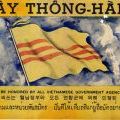Extract from interview with Judith Fyfe, 21 February 2008
Reproduced with permission of Geoff Braybrooke
What sort of percentage was there of wounds and injuries as a result of the war, I mean what was the...?
I don't know the exact number, to be honest with you, but it would be fairly high, I could say that. Fairly high, but I wouldn't, I wouldn't really know, to be honest. But when the rainy season come, cholera became sort of the leader, if you like because of contaminated drinking water. I mean they, they'd all have a crap up in the river up there and they'd draw their water off for drinking down here. They had no idea.
Preventive medicine – the field was wide open in those days, in Vietnam. And we did our best to try and teach them, we really did. To try and teach them that you mustn't have a crap there and then draw your water down here. You do the reverse, sort of thing.
How did you try to teach them, I mean, how did you...?
You tried to get somebody who could speak a bit of English and explain to them, and get them to explain it to them. We finally ended up with a couple of interpreters. People called ‘Chieu Hoi's' who were captured North Vietnamese who'd surrendered and decided to work for the South. And they were called Chieu Hoi's. And we had one who'd been a student and spoke quite passable English. He didn't last too long unfortunately.
Why?
The Viet Cong made sure they got him. It didn't do to change over too well. I do remember him one night sitting in – we were having a meal. We'd all been working hard that day, and he was saying about the B-59s [aircraft], and how he'd, he'd left Hanoi and the cheers of the public. And as soon as the trucks got to the edge of the town, they all got off and started walking down the Ho Chi Minh trail which was a long bloody way, and quite difficult.
They got bombed and shelled, and god knows what. And he got caught in the open with his unit, and I'll always remember him looking at us and saying, "Those B-59s – very dangerous. Very, very dangerous." So he gave up.
Vietnam War Oral History Project, Manatu Taonga Ministry for Culture & Heritage







